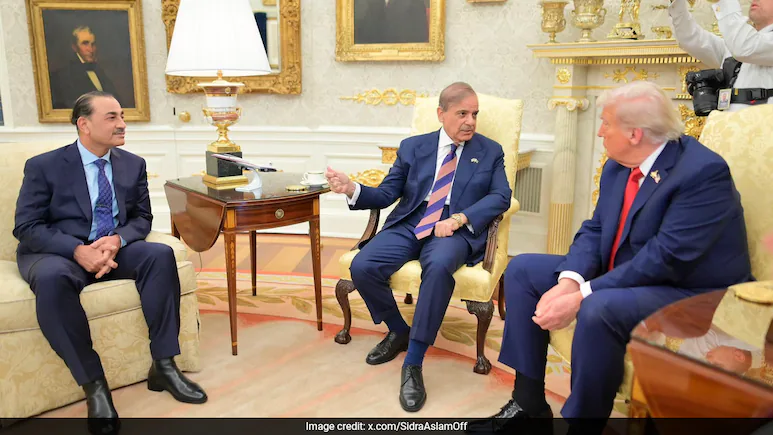
On September 30, 2025, when Trump’s called Pakistan’s leaders “incredible,” the Trump Gaza peace plan stage suddenly felt like global politics rewritten.
U.S. President Donald Trump created a stir in global diplomacy by openly praising Pakistan’s Prime Minister Shehbaz Sharif and Chief of Army Staff Field Marshal Asim Munir for backing his Trump Gaza peace plan.
In his press briefing, Trump Gaza peace plan described them as “incredible” leaders who have supported the initiative “100 per cent” from the start, signalling a stronger alignment between Washington and Islamabad on a matter that has divided global opinion for decades.
The 20-Point Gaza Peace Plan
At the centre of this development is Trump’s ambitious 20-point peace plan aimed at halting the Israel-Hamas conflict. The plan outlines:
- An immediate ceasefire if both parties agree.
- Release of all hostages within 72 hours of agreement.
- Phased Israeli withdrawal from certain areas, with a freeze on current battle lines.
- A prisoner exchange, where Israel would release Palestinian prisoners in return for its captured citizens.
- Broader humanitarian arrangements for aid and reconstruction in Gaza.
Trump claimed Israeli Prime Minister Benjamin Netanyahu had accepted the plan, a move he termed as “historic.” He also thanked leaders from Saudi Arabia, Qatar, UAE, Jordan, Turkey, and Indonesia for their “tremendous support.”
Trump Gaza peace plan: Pakistan’s Role and Response
Pakistan has historically positioned itself as a vocal supporter of the Palestinian cause, often calling for a two-state solution. While it has avoided formal ties with Israel, Islamabad’s backing of Trump’s plan is being seen as a strategic move to play a larger diplomatic role in the Muslim world. Pakistan’s official statement welcomed Trump’s approach, stressing that “durable peace between Palestinians and Israelis is essential for stability in the region.”
For Pakistan, aligning with the U.S. on this issue could also help strengthen bilateral ties at a time when Islamabad seeks greater economic cooperation and foreign investment.
Opportunities and Challenges Ahead
While endorsements from Pakistan and other Muslim-majority nations add credibility to the initiative, analysts caution that the real test lies in Hamas’ response. Without its agreement, the plan may remain symbolic. Furthermore, unresolved core issues such as the status of Jerusalem, Palestinian statehood, refugees’ right of return, and Israel’s long-term security concerns could undermine progress.
Critics also argue that Trump’s plan may face skepticism within Pakistan, where public sentiment has traditionally leaned towards unconditional Palestinian support and suspicion of U.S. motives in the region.
A Multilateral Push
Despite the uncertainties, Trump’s dynamics in Midplan strategydle Eastern diplomacy. Pakistan’s involvement enhances its global visibility, demonstrating that it intends to act as more than just a regional player, but also a contributor to the broader Muslim consensus on global issues.
Trump Gaza peace plan: Conclusion
Trump’s statement—“They’re incredible. They’ve supported us 100 percent”—puts Pakistan in the international spotlight. Whether this convergence of U.S., Israeli, and Pakistani positions can truly pave the way for lasting peace in Gaza remains uncertain. For now, it underscores a rare moment where Washington and Islamabad find themselves on the same side of history, united by the pursuit of an elusive peace.
FOR MORE BLOGS – beyondthepunchlines.com

 Add to favorites
Add to favorites







